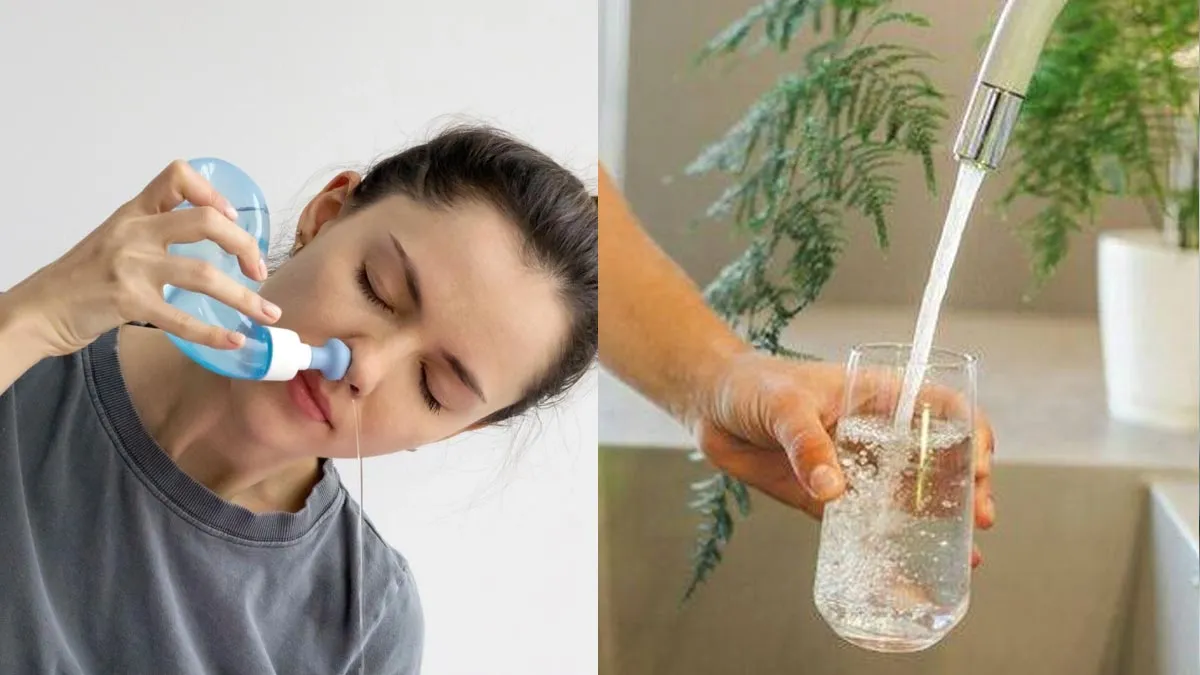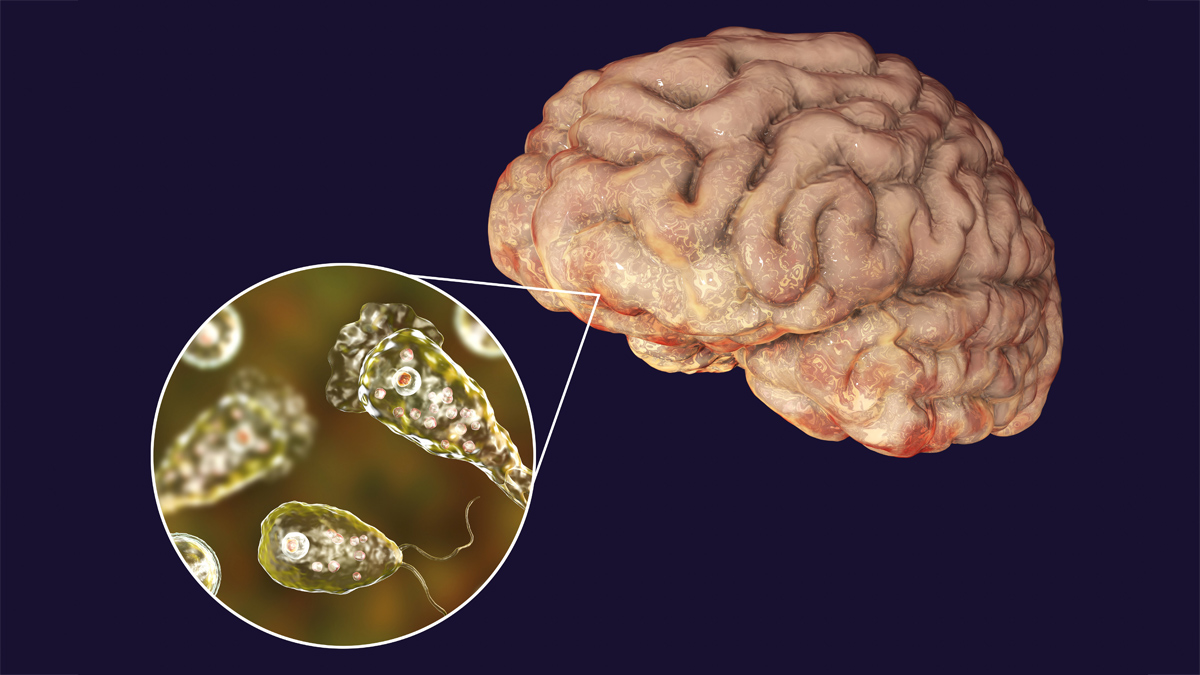
A Texas woman’s tragic death has put a spotlight on the hidden dangers of using tap water for sinus rinsing. The 71-year-old, previously healthy, developed a rare and almost always fatal brain infection after rinsing her sinuses with tap water from an RV at a Texas campground. Within four days, she experienced severe neurological symptoms. Some of them included fever, headache, and confusion.
Table of Content:-
Despite medical intervention, her condition quickly worsened, and she died just eight days after symptoms began. Health officials have confirmed that the cause was Naegleria fowleri, commonly known as the ‘brain-eating amoeba.’ Read ahead to know more about the incident and how it may be dangerous.
What Is the Brain-Eating Amoeba (Naegleria fowleri)?![Brain-Eating Amoeba Naegleria fowleri 2 - 2025-06-04T115459.037]()
Naegleria fowleri is a single-celled organism found in warm freshwater environments such as lakes, rivers, and hot springs. While rare, it can cause a deadly brain infection called primary amebic meningoencephalitis (PAM) if contaminated water enters the nose. The amoeba travels up the nasal passages to the brain, where it destroys brain tissue. According to the Centres for Disease Control and Prevention (CDC), PAM is almost always fatal. Out of the 164 known US cases from 1962 to 2023, only four people have survived. The CDC warns that you cannot get infected by drinking contaminated water; infection only occurs when contaminated water goes up the nose.
The Drawbacks of Using Tap Water for Sinus Rinse![tap water for sinus rinse 3 - 2025-06-04T115457.749]()
Many people use sinus rinses, like neti pots or squeeze bottles, to relieve congestion or allergies. However, using tap water, even if it’s safe to drink, can be dangerous if it contains harmful microorganisms like Naegleria fowleri. Tap water is not sterile and may harbour bacteria or amoebas, especially if sourced from untreated or inadequately disinfected systems such as RV tanks or private wells. Health officials strongly advise using only distilled, sterile, or previously boiled and cooled water for nasal irrigation. Failing to do so can result in rare but deadly infections, as tragically illustrated by this recent case in Texas.
A study published in Clinical Infectious Diseases analysed cases of primary amebic meningoencephalitis in the United States and found that most infections occurred after exposure to warm freshwater during recreational activities. However, several cases were linked to the use of tap water for nasal irrigation. The study concluded that public awareness and education about the risks of non-sterile water in nasal rinsing are critical for prevention. The researchers emphasised that using only sterile, distilled, or boiled water can significantly reduce the risk of Naegleria fowleri infection.
Conclusion
The heartbreaking death of a Texas woman after using tap water for a sinus rinse is a stark reminder of the importance of water safety in everyday health routines. Naegleria fowleri infections are extremely rare but almost always fatal. To protect yourself and your loved ones, always use sterile, distilled, or previously boiled water for sinus rinsing. If you develop symptoms like headache, fever, or confusion after a nasal rinse, seek medical attention immediately. Simple precautions can save lives.
Also watch this video
How we keep this article up to date:
We work with experts and keep a close eye on the latest in health and wellness. Whenever there is a new research or helpful information, we update our articles with accurate and useful advice.
Current Version

